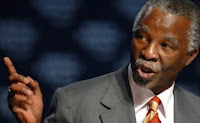In poor African countries, children get pulled out of school—and don't return. They miss out on becoming productive adults. In some cases, children die before they even have a chance to go to school. If the current growth collapse is typical of the ones Africa has experienced in the past, an additional 700,000 African children may die before their first birthday.
In short, the effects of fluctuations in the global marketplace on Africa will be permanent.
So the idea that aid may be threatened because of the recession in rich countries seems to have the logic backwards. Precisely because the effects in rich countries are temporary, resources should go to places where they may be permanent. Of course, there are political pressures to spend domestically. But do politicians in rich countries really think that a few more votes are worth more than the lives of the infants who will die as a result of the recession?
Furthermore, the relatively modest sum spent on aid to Africa in the past decade was at least partly responsible for the continent’s rapid growth. From 1998-2008, aid to Africa was increasing and economic growth was accelerating (to over 6 percent in 2007); poverty was declining and human development, especially primary school completion rates and the spread of HIV/AIDS, was improving. African countries had strengthened their macroeconomic policies—inflation had dropped to half its level in the mid-1990s—so that aid was more productive. Private capital was flowing in at a faster rate than in any other continent. All of these developments have come to a grinding halt because of the global economic crisis—a crisis that was not remotely the fault of Africans. By increasing aid to Africa, the international community has a chance to reverse this trend and prevent a temporary shock from having permanent consequences.














